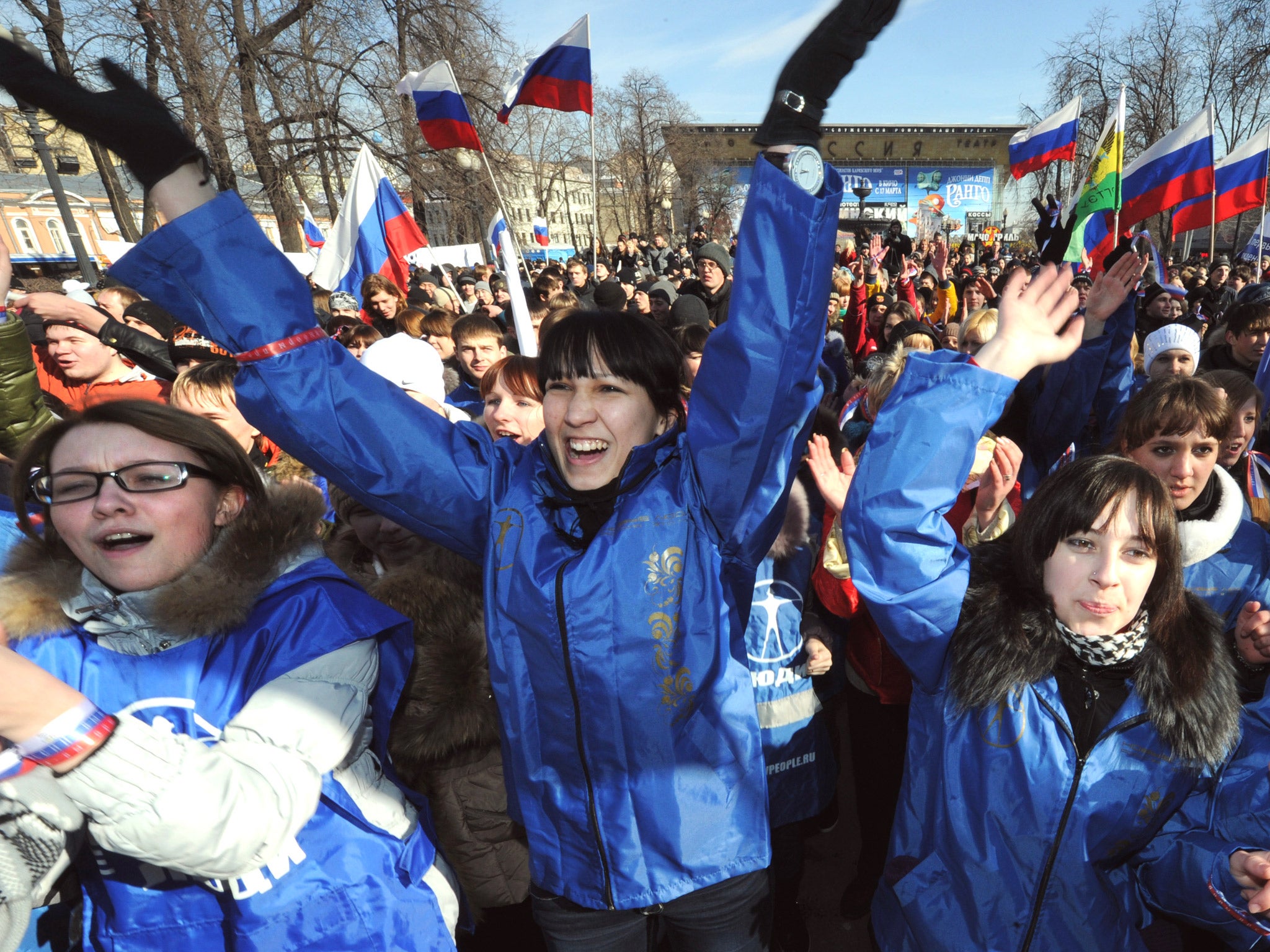Young Russians yearn for the glory days of the Soviet Union – despite not having experienced it
Tales of standing toe to toe with the United States have been handed down by nostalgic parents

The Soviet Union used to command respect on the international stage. It stood toe to toe with the United States. It wielded its influence in the far corners of the globe. Oksana Chernysheva, a first-year journalism student at the International University in Moscow, shares the view of her President, Vladimir Putin: the collapse of the Soviet Union was a disaster.
“We used to be huge and strong, and then it collapsed,” she said. But what for the 61-year-old Mr Putin amounts to an acute sense of lost glory is for Ms Chernysheva, 18, an opinion based almost entirely on wistful tales handed down by nostalgic parents. She was born five years after the Soviet Union fell apart.
Mr Putin’s moves this year to annex Crimea and to support pro-Russian movements in Ukraine appear to have resonated with a younger generation that has no memory of the Soviet Union but yearns for its power.
According to the Levada Centre, an independent polling organisation in Moscow, the President’s high approval rating among young people tops even his numbers among an older generation that remembers the empire and views Crimea and Ukraine as essentially Russian.
People 18 to 24 years old – the youngest group among 1,600 people surveyed in late May – backed Mr Putin more than any other age bracket, at 86 per cent, said Karina Pipiya, a spokeswoman for the centre.
The image of a vast military power that commanded global respect is particularly appealing to Ms Chernysheva. “I believe that the world should be afraid of us,” she said, sipping a hot chocolate in a café near her university. “To be afraid means to respect.”
On campuses, anti-Putin students and faculty members are outnumbered, but they also face being harassed for their opposition views.
“It’s so easy to go to jail in Russia,” said Chernysheva’s friend Anton Kusakin, 20, who worked for opposition leader Alexei Navalny last year. Putin’s annexation of Crimea “spoiled everything”, he said.
Join our commenting forum
Join thought-provoking conversations, follow other Independent readers and see their replies
Comments
Bookmark popover
Removed from bookmarks